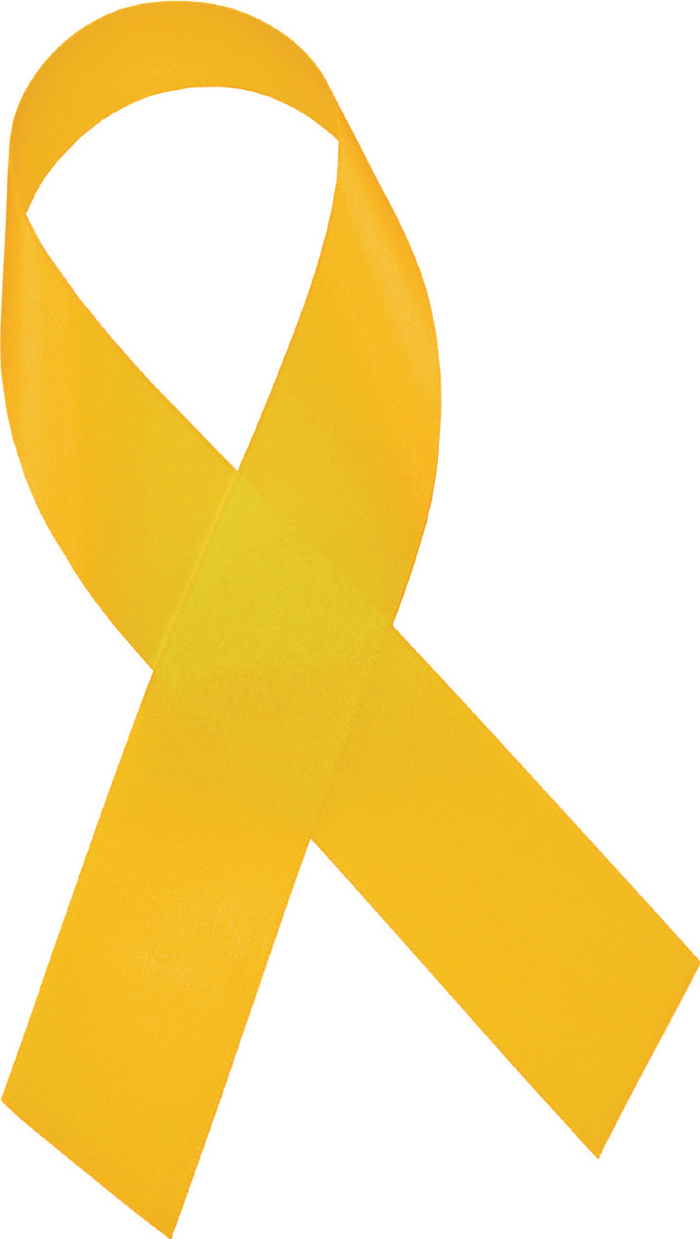Forgotten killer
In In-depth
Follow this topic
Bookmark
Record learning outcomes
 Despite being the seventh most common cancer in the UK, bladder cancer is under-recognised and overlooked. How can pharmacy teams help tackle this forgotten killer?
Despite being the seventh most common cancer in the UK, bladder cancer is under-recognised and overlooked. How can pharmacy teams help tackle this forgotten killer?
It can be easily overlooked. After all, having blood in the urine isn't something to bother your doctor with, is it? Especially if it just happened once. Probably an over-the-counter cystitis treatment will sort it out.
Not so! In fact, blood in the urine is a symptom in more than 80 per cent of bladder cancers, so should always be taken seriously, even if it is a one-off occurrence. Like all cancers, catching it early is critical. With pharmacy being the first source of advice for urinary symptoms, pharmacy staff can play a vital role in helping to identify the early signs of bladder cancer €“ potentially helping to save one of the 14 lives lost to the condition each day.
The good and the bad
Bladder cancer is the seventh most common type of cancer in the UK, responsible for one in 30 new cancer cases. And it is also the most expensive cancer to treat, costing the NHS around £65 million in direct costs each year. Despite this, Hugh Mostafid, chair of the charity Action on Bladder Cancer and consultant urologist at the Royal Berkshire Hospital, says: €With over 10,000 people diagnosed every year in the UK, bladder cancer is not a rare cancer, and yet it seems to be hardly ever talked about.€
The good news from recent research is that the number of people affected by bladder cancer in England dropped by 19 per cent, from 10,742 in 1990 to 8,775 in 2009. The bad news is that the number of people dying from bladder cancer decreased by only 10 per cent. In fact, you are less likely to survive bladder cancer in England than in other European countries with similar numbers of cases.
Jeremy Crew, consultant urological surgeon, Oxford Hospitals, admits that the new data is surprising and worrying, with survival rates being equally poor across Scotland, Wales and Northern Ireland. There is no specific reason for this, he believes: €It is likely to represent a consequence of the lack of research, lack of funding and lack of public awareness of the disease.€
Watch for signs
Timing is important if someone is to survive bladder cancer: if diagnosed at the early stage, over 90 per cent of people will still be alive in a year, compared with only 25-34 per cent of those diagnosed at the latest stage. Survival rates are poorest in those who are older and also in women aged 40-59. The reasons why middle aged women are particularly affected are unclear, but Mr Crew suggests they may be being treated for cystitis, resulting in a delayed diagnosis.
One of the most important diagnostic signs of bladder cancer is blood in the urine, yet most people are unaware that this is a cancer symptom. So, if it does occur, they don't think to ask their GP for advice. This is often during the early stages when the cancer can be treated effectively. €People put 'red' urine down to what they eat, too much exercise or a mild infection. Often it is not until it recurs that they go to see a GP. This could be delay of a number of months, or even years,€ says Mr Crew.
Jacky Turner, principal pharmacist in oncology at Guy's and St Thomas' Hospital and area team cancer pharmacist for NHS England London region, adds: €Unfortunately, some of the early signs of bladder cancer are interchangeable with more innocent conditions, such as cystitis.€
Advice from experts is clear: both healthcare professionals and the public need to have a greater awareness of the symptoms of bladder cancer (see box below). €If people see blood in their wee, even if it is just the one time, they need to see their GP straight away,€ says Mr Mostafid.
Who's at risk?
Most bladder cancer cases in adults are caused by smoking or exposure to chemicals. Inhaling or swallowing cancer-causing substances (carcinogens) can lead to them being present in the urine. As this urine can stay in the bladder for several hours, even small amounts of carcinogens are in contact with the bladder lining for a prolonged time.
The most common causes of bladder cancer are:
- Smoking, resulting in 40-70 per cent of bladder cancer cases. Smokers are up to three times more likely to develop bladder cancer than non-smokers
- Exposure to chemicals at work, such as dyes or diesel fumes, may account for a quarter of cases
- Repeated and long-term bouts of cystitis can be a risk factor for older women
- Certain anti-cancer drugs and radiotherapy for cervical cancer
- There have been some dietary links to soya extracts and excessive amounts of coffee.
The risk of bladder cancer increases with age: between 2009 and 2011, 68 per cent of all bladder cancer deaths were in those aged 75 years and over, with men three times more likely to die than women. As with other cancers, encouraging customers to quit smoking can help to reduce the risk of developing bladder cancer. Promoting a healthy lifestyle with plenty of fruit and vegetables and drinking lots of fluid to help pass urine more often, may also help.
Symptoms: urgent referral
Key symptoms include:
- Painless blood in the urine
- Blood in the urine and no signs of infection
- Recurrent or persistent urinary tract infections with blood in the urine in people aged 40 or over.
Other symptoms can include: pain when urinating, increased frequency of urination and pelvic pain.
Early identification
The Royal Pharmaceutical Society (RPS) is working with other pharmacy organisations, national charities and professional bodies to call for the inclusion of early cancer detection within the community pharmacy contract in England. With around 1.2 million pharmacy visits per day, pharmacy staff are ideally placed to raise awareness of cancer symptoms and identify those who are at risk, says the RPS.
Mr Crew and Ms Turner agree that pharmacy can play a more proactive role in helping diagnose bladder cancer earlier. Says Mr Crew: €Pharmacy staff have a close liaison with the community and are often the first port of call for patients with urological symptoms. They are often the first medically trained professionals that these patients have seen, so their input is crucial.€
Highlighting to patients the risks of bladder cancer and its symptoms is vital, he adds, particularly among older patients and smokers.
Ms Turner advises pharmacy staff to be alert to customers who may need advice: €There is clearly a role with patients who go in and buy cystitis treatments repeatedly. Pharmacy staff could be more vigilant with repeat behaviour and recommending that this is worth investigating. Those who have blood in their urine may not say this, but some questioning could get this information out."
If people see blood in their wee, even if it is just the one time, they need to see their GP straight away
 Smokers are up to three times more likely to develop bladder cancer than non-smokers
Smokers are up to three times more likely to develop bladder cancer than non-smokers
Active role
Using in-store materials, such as last autumn's 'Blood in Pee' Be Clear on Cancer campaign, can help raise awareness of bladder and kidney cancer symptoms and encourage people to see their GP earlier. The campaign recognises that it can be difficult to raise this sensitive subject and offers the following advice:
- Make it part of your day €“ during your regular consultations, such as medicines use reviews, or when looking for OTC medicines or advice. Ms Turner recommends that pharmacy staff adopt a careful and sensitive approach when talking to customers about possible cancer symptoms
- Give permission €“ people can delay going to see their GP and often seek permission to make an appointment. If customers have noticed blood in their urine, urge them to visit their GP. Mr Crew reassures pharmacy staff that referring all patients with blood in the urine is the right thing to do: €Evidence indicates that time is of the essence. All GPs would rather have patients referred unnecessarily with these 'alarm bell' symptoms than wait and present later with advanced cancer.€
Ongoing support
Pharmacy can also help patients living with bladder cancer. Signposting customers to sources of advice and support is invaluable. For example, the Macmillan nurses group has launched a successful campaign in partnership with Boots to help people affected by cancer get the information and support they need, as well as being directed to other Macmillan services.
Getting more involved in helping to identify and support people with bladder cancer could mean that pharmacy makes a real difference to the chances many people have of surviving this overlooked disease.
First-hand stories
Deb's story
Deb had many visits to her GP over the years for cystitis, usually resulting in a prescription for antibiotics. At New Year in 2012, she noticed blood in her urine and went back to her GP. At this point, Deb asked to be referred for further investigation and within four weeks, she had a small and non-invasive bladder cancer tumour removed.
Andrew's story
One trip to the toilet changed Andrew's life. His initial panic at seeing a stream of bright scarlet wee resulted in an emergency doctor's appointment, tests, an urgent hospital referral and a diagnosis of late stage bladder cancer. Not only did Andrew have surgery, but it prompted him to set up one of the leading bladder cancer charities to support others living with bladder cancer: Fight Bladder Cancer.
